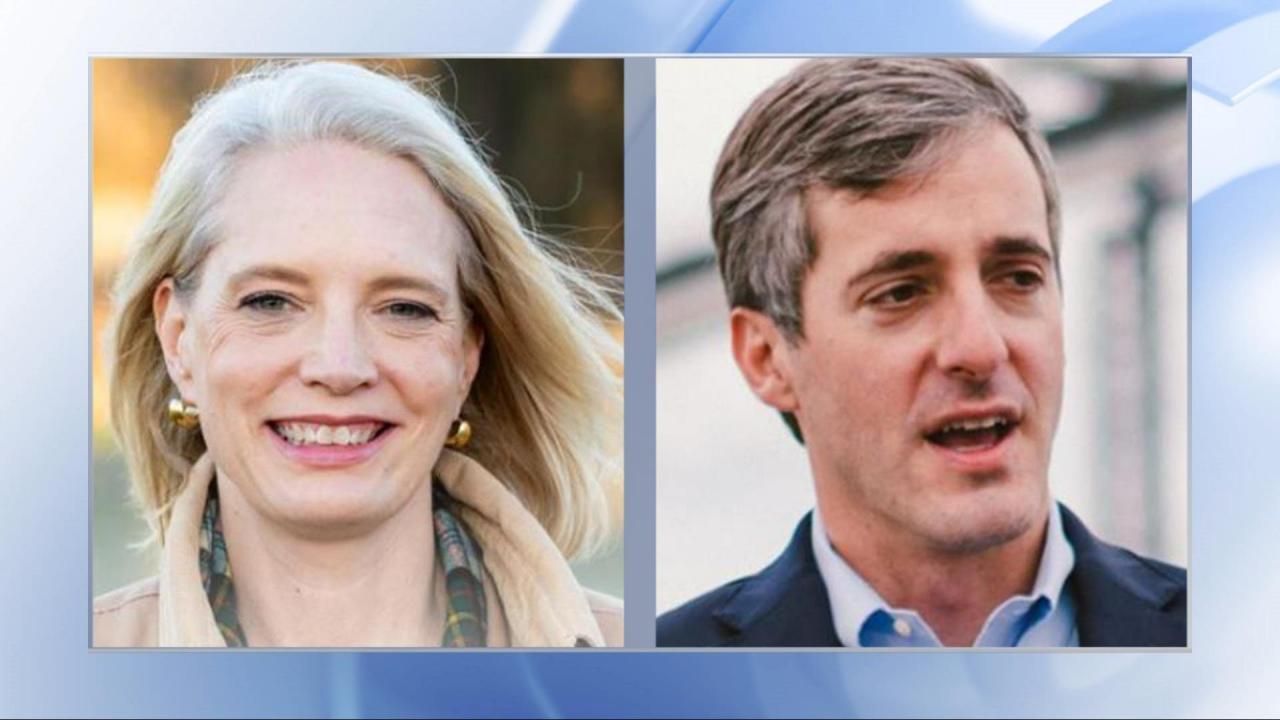Knott, now endorsed by competitor, poised to win GOP congressional nomination

The race to secure the Republican nomination for a Triangle-area congressional seat will come to a close Tuesday, when voters cast ballots in a second primary. And what started as an unpredictable, neck-and-neck affair in March — evolving into a tense battle over conservative credentials — is expected to end with what was once unexpected: A victory for Brad Knott.
Knott became the favorite this month when his competitor, Kelly Daughtry, suspended her campaign and endorsed Knott. Daughtry’s name will still be on ballots, though, but she has since rallied support for the former assistant U.S. attorney from Raleigh.
Daughtry appeared to be on her way to victory early last month. Her campaign announced that its internal polling showed her up 19 percentage points on Knott. But the race tilted in Knott’s favor after former President Donald Trump endorsed him. In the end, Daughtry, a Johnston County lawyer, said she didn’t want to go against Trump.
The GOP nominee is expected to face Democrat Frank Pierce in the general election — and likely win. U.S. Rep. Wiley Nickel, the district’s Democratic incumbent, isn’t seeking reelection because state lawmakers recently redrew the district to give Republicans a significant statistical advantage.
In 2022, the 13th district was mostly confined to the southeastern regions of the Triangle in Wake, Johnston and Harnett Counties. In the 2024 election, it curls around left-leaning Wake County like a fish hook. It starts in Caswell County and stretches eastward across the state’s northern border before dropping into Franklin, Johnston and Harnett counties. It then turns west again, capturing the south extremes of Wake County before ending southwest of the Triangle in Lee County.
The redistricting attracted a whopping 14 Republicans to the race, given the likelihood of a GOP win in November. Daughtry and Knott spent millions of dollars on their respective campaigns, emerging as the top two candidates in the March 5 primary. Daughtry received 27% percent of the vote, and Knott received 19% — a gap of about 7,000 votes, but short of the 30% threshold needed to win the nomination outright.
Knott’s experience as a federal prosecutor afforded him a campaign message that stood out in the GOP field. Knott tells voters that he’s qualified to address crime and immigration in Congress because he helped put drug traffickers behind bars. Crime and immigration are top issues for Republican voters.
Daughtry said she’d help farmers, cut government spending, support tougher policies on China and work to strengthen border security.
The candidates sparred over who was the most conservative, often accusing each other of holding secret liberal beliefs. Daughtry donated to campaigns of Democratic candidates in 2020 and 2021 and said in a social media post in 2012 that she planned to vote for Democrat Barack Obama. Daughtry, meanwhile, attacked Knott for working as a federal prosecutor under the Biden administration and for voting from the wrong address.
Daughtry’s late exit from the race was a shocker. Until Trump’s endorsement of Knott, Republican insiders still considered Daughtry the favorite in the runoff.
Knott has urged supporters to still vote in the second primary; even though Daughtry has suspended her campaign, he still needs to win the election to earn the nomination. If Daughtry were to win, she could choose to keep the nomination or turn it down. If she turned it down, GOP leaders in the district would choose the nominee to face Pierce in November.
She had strong support in her home county, where many of the district’s voters live. She also had endorsements from many elected officials in the area. And she benefitted from name recognition; Daughtry ran for the same congressional seat in 2022, placing third, and her father represented the area in the state legislature for decades.
Daughtry said she still plans to remain politically active if she loses the nomination. “I will not stop using my voice for the things I believe in,” she said in a May 2 statement. “I will focus on conservative voter registration operations and supporting the nominated conservative judicial candidates running in November."













